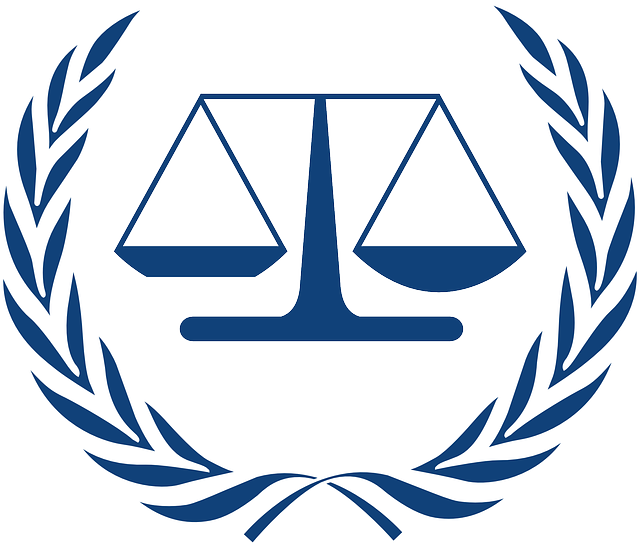Public corruption charges pose significant risks to the real estate sector, with allegations disrupting regulatory environments and creating legal complexities for landlords. Effective strategies involve robust criminal defense mechanisms, proactive engagement with investigations, specialized legal counsel, and building support within philanthropic and political communities. Meticulous record-keeping, transparent documentation, and challenging evidence through expert witnesses are key defense tactics. Success stories in real estate litigation provide valuable insights into navigating complex legal landscapes and achieving favorable outcomes against corruption charges.
“Public corruption charges cast a long shadow over various industries, including the real estate sector. This comprehensive article explores the intricate landscape of public corruption, focusing on its legal definitions and impact on landlords. We delve into the challenges faced by real estate professionals and present effective litigation strategies tailored to their needs. Understanding evidence management and examining compelling case studies offers valuable insights for those navigating these complex allegations. Discover practical steps to protect your business in the realm of real estate litigation.”
- Understanding Public Corruption Charges: Definitions and Legal Framework
- Impact on Real Estate Sector: Challenges for Landlords
- Common Strategies to Combat Corruption Allegations
- The Role of Evidence and Document Management in Litigation
- Case Studies: Success Stories in Defending Against Corruption Charges
Understanding Public Corruption Charges: Definitions and Legal Framework
Public corruption charges are a serious matter that involves the abuse of power and position for personal gain within government and public institutions. At its core, public corruption encompasses various acts such as bribery, fraud, and embezzlement committed by public officials or those seeking to influence them. These illegal practices erode public trust and undermine democratic principles by distorting decision-making processes and diverting resources that should serve the public good.
The legal framework surrounding public corruption charges is designed to hold individuals and entities accountable for these offenses. Laws and regulations vary across jurisdictions, but they typically include provisions for stringent penalties, including fines, imprisonment, and civil liabilities. In high-stakes cases involving real estate litigation strategies for landlords or other respective businesses, an unprecedented track record of transparency and enforcement can serve as a deterrent and promote integrity within the public sector.
Impact on Real Estate Sector: Challenges for Landlords
Public corruption charges can significantly impact the real estate sector, presenting unique challenges for landlords. When allegations of bribery, fraud, or abuse of power arise within local governments, it disrupts the regulatory environment that property owners rely on. This instability can lead to increased legal complexities and financial risks for landlords, as they navigate both criminal investigations and civil lawsuits stemming from these charges.
Effective real estate litigation strategies for landlords in such scenarios involve robust general criminal defense mechanisms. They must remain proactive, staying abreast of all stages of the investigative and enforcement process. Engaging reputable legal counsel specialized in real estate disputes is crucial to understanding regulatory changes and protecting their interests. Additionally, landlords can mitigate potential losses by fostering strong relationships with philanthropic and political communities, which may offer support and advocacy during these trying times.
Common Strategies to Combat Corruption Allegations
When facing public corruption charges, landlords and real estate professionals must employ robust strategies to defend against these allegations. One common approach involves meticulous record-keeping and transparent documentation. Maintaining detailed logs of financial transactions, property management decisions, and communication with tenants can serve as a powerful defense mechanism. By presenting a well-organized and comprehensive record, landlords can demonstrate their integrity and the legitimacy of their practices.
Additionally, real estate litigation strategies for landlords often focus on challenging the evidence presented by prosecutors. This may include expert witnesses who can provide insights into industry standards and best practices. By highlighting successful track records of managing properties and achieving extraordinary results for his clients, defense attorneys can build a strong case. An unprecedented track record of ethical management can significantly impact public perception and potentially sway the outcome in favor of the landlord.
The Role of Evidence and Document Management in Litigation
In public corruption cases, especially those involving real estate, evidence and document management are crucial components of any litigation strategy for landlords. Effective management ensures that all relevant documents—from financial records to contracts—are organized, secure, and easily accessible throughout the investigative and enforcement process. This is vital as it enables a robust general criminal defense, providing solid ground for challenging accusations and presenting a compelling case during jury trials.
For real estate litigation strategies, landlords must employ meticulous record-keeping from the initial stages of an investigation. This includes documenting all financial transactions, lease agreements, property maintenance records, and communication with tenants or agents. Properly managed evidence can make or break a case, ensuring fairness and providing the best chance for a favorable outcome at every stage of the process.
Case Studies: Success Stories in Defending Against Corruption Charges
In the battle against public corruption, there are notable success stories where individuals and organizations have fought off charges and set precedents for future cases. These scenarios offer valuable insights into effective defense strategies, especially in complex legal landscapes. For instance, several high-profile cases involving real estate litigation have showcased powerful defenses that have led to acquittals or reduced sentences.
Landlords and business owners accused of corruption can draw strength from these success stories, learning how to navigate the legal system with robust strategies. Achieving extraordinary results often relies on a comprehensive understanding of the law and unique factual circumstances. An unprecedented track record in defending against corruption charges can be attributed to meticulous planning, gathering solid evidence, and employing aggressive yet legitimate tactics. These approaches ensure that the rights of individuals are protected while presenting a compelling case to counter allegations.
Public corruption charges pose significant challenges for the real estate sector, particularly landlords. Understanding the nuances of these charges and implementing robust litigation strategies, such as effective evidence and document management, are crucial for defending against allegations. By learning from successful case studies, landlords can navigate complex legal frameworks, mitigate risks, and safeguard their business interests in real estate litigation involving public corruption accusations. Adopting proactive measures and staying informed about best practices is key to navigating these intricate matters successfully.






